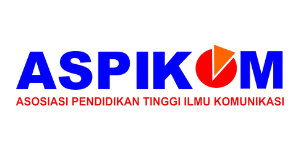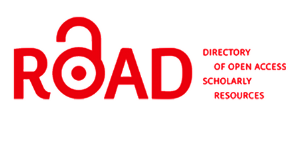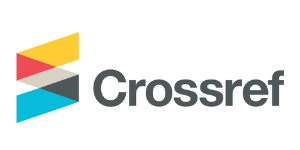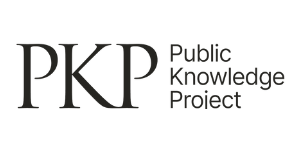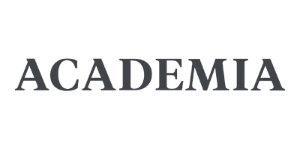Indonesia’s Roles in Myanmar’s Rohingya Crisis: Through the Lens of Public Diplomacy
DOI:
https://doi.org/10.37535/105003120245Keywords:
Public Diplomacy, ASEAN, Indonesia, Rohingya's Crisis, Shuttle DiplomacyAbstract
Myanmar's Rohingya crisis remains unresolved, with the Rohingya minority suffering human rights violations from the majority Buddhist Rakhine population, supported by the central government. As a result, many Rohingya have fled to neighboring countries like Thailand, India, Indonesia, Nepal, and others in the region (UN Refugees, 2022). Indonesia, a founding ASEAN member, believes ASEAN should address the Rohingya crisis, but ASEAN faces obstacles due to the non-intervention principle and differing ideologies and interests among member states. Concerned with the crisis since its emergence in 1948, Indonesia has intensified its peace-brokering efforts as the current ASEAN host, utilizing shuttle diplomacy and engaging key players in Myanmar. Resolving the conflict is significant for Indonesia, as it seeks to enhance its regional reputation and revive its influential role from the Soeharto era. Public diplomacy will be used in this paper by seeing the efforts of the Indonesian government, especially during President Jokowi's second term. As Joseph S. Nye said “soft power is the ability to affect others to obtain the outcomes one wants through attraction rather than coercion or payment,” we can see the Indonesia effort through shuttle diplomacy, implementation of the Five-Point Consensus on Myanmar, and humanitarian aid to solve this conflict.
References
Alam, J. (2019). The Current Rohingya Crisis in Myanmar in Historical Perspective. Journal of Muslim Minority Affairs, 39(1), 1–25. https://doi.org/10.1080/13602004.2019.1575560
Cull, N. J. (2008). Public Diplomacy: Taxonomies and Histories. The ANNALS of the American Academy of Political and Social Science, 616(1), 31-54. https://doi.org/10.1177/0002716207311952
David A. Hoffman; Mediation and the Art of Shuttle Diplomacy. Negotiation Journal 2011; 27 (3): 263–309. doi: https://doi.org/10.1111/j.1571-9979.2011.00309.x
Hes, A. (2021). Globalization – the source of new crises (Issue 129) [The 21st International Scientific Conference Globalization and its Socio-Economic Consequences 2021]. EDP Sciences. https://www.shs-conferences.org/articles/shsconf/abs/2021/40/shsconf_glob2021_10004/shsconf_glob2021_10004.html
IOM UN Migration. (2024, March 4). Report on Migration, Environment, and Climate Change in Yemen. Environmental Migration Portal. https://environmentalmigration.iom.int/sites/g/files/tmzbdl1411/files/documents/2024-03/yemen-desk-review.pdf
Joshua E Blumenstock, Guanghua Chi, Xu Tan, Migration and the Value of Social Networks, The Review of Economic Studies, 2023;, rdad113, https://doi.org/10.1093/restud/rdad113
Kemenparekraf RI. (2023). Press Release ASEAN Summit 2023: Indonesia Urges Strengthening of ASEAN Institutional Capacity and Effectiveness. Ministry of Tourism and Creative Economy / Tourism and Creative Economy Agency. https://kemenparekraf.go.id/en/articles/press-release-asean-summit-2023-indonesia-urges-strengthening-of-asean-institutional-capacity-and-effectiveness-2
Kemenlu RI. (2022, 10 06). Statement by Minister for Foreign Affairs of the Republic of Indonesia at the UNGA High-Level Side Event on “Rohingya Crisis” New York, 22 September 2022. Kementerian Luar Negeri Republik Indonesia. https://kemlu.go.id/portal/id/read/4049/pidato/statement-by-minister-for-foreign-affairs-of-the-republic-of-indonesia-at-the-unga-high-level-side-event-on-rohingya-crisis-new-york-22-september-2022
Kim, H. (2024, 4). When It Rains It Pours: Political Determinants of Inflation Crises in Civil War. The Korean Journal of International Studies, 22(1), 27-65. 10.14731/kjis.2024.04.22.1.27
Kleinfeld, R. (2023, September 5). Polarization, Democracy, and Political Violence in the United States: What the Research Says. Carnegie Endowment for International Peace. https://carnegieendowment.org/research/2023/09/polarization-democracy-and-political-violence-in-the-united-states-what-the-research-says?lang=en
Kuhnt, J. (2019, 6). Why Do People Leave Their Homes? Is There an Easy Answer? A Structured Overview of Migratory Determinants [Literature Review: Drivers of Migration]. Deutsches Institut für Entwicklungspolitik gGmbH. 10.23661/dp9.2019
Lee, S.J., & Melissen, J.B. (2011). Public diplomacy and soft power in East Asia.Nye, Joseph S. (2011). The Future of Power. New York: Public Affairs.
Lowe, G. F., & Bardoel, J. (2007). From Public Service Broadcasting to Public Service Media. Nordicom Göteborg University. https://www.diva-portal.org/smash/get/diva2:1534710/FULLTEXT01.pdf
Magalhaẽs, C. J. (1988). The pure concept of diplomacy. New York: Greenwood Press.
Nye, J. S., Jr. (2019). Soft Power and Public Diplomacy Revisited. The Hague Journal of Diplomacy, 14(1-2), 7-20. https://doi.org/10.1163/1871191X-14101013
OECD. (2022). Migraton. Organisation for Economic Co-operation and Development. https://www.oecd.org/en/topics/policy-issues/migration.html
Oltermann, P. (2020). How Angela Merkel's great migrant gamble paid off. The Guardian. https://www.theguardian.com/world/2020/aug/30/angela-merkel-great-migrant-gamble-paid-off
Public Diplomacy in a Changing World. (2008). The ANNALS of the American Academy of Political and Social Science, 616(1), 291-317. https://doi.org/10.1177/0002716208314503
Roozenbeek, J. (2020). The Failure of Russian Propaganda. University of Cambridge. https://www.cam.ac.uk/stories/donbaspropaganda
Serra, S., & Revez, J. (2024). Social inclusion of refugees and asylum seekers: The role of public libraries in the Lisbon Metropolitan Area. Journal of Librarianship and Information Science, 56(2), 397-414. https://doi.org/10.1177/09610006221146549
Sukma, R. (2011). Soft Power and Public Diplomacy: The Case of Indonesia. In: Lee, S.J., Melissen, J. (eds) Public Diplomacy and Soft Power in East Asia. Palgrave Macmillan Series in Global Public Diplomacy. Palgrave Macmillan, New York. https://doi.org/10.1057/9780230118447_6
Tirtosudarmo, Riwanto (2008). Critical Issues on Forced Migration Studies and The Refugee Crisis in Southeast Asia. Jurnal Kependudukan Indonesia, III(1), 1-20. https://ejurnal.kependudukan.lipi.go.id/index.php/jki/article/download/160/192
UNHCR. (2023, August 23). Rohingya Refugee Crisis Explained. USA for UNHCR: The UN Refugee Agency. https://www.unrefugees.org/news/rohingya-refugee-crisis-explained/#Rohingya
Vahabi, M. (2009). A Critical Review of Strategic Conflict Theory and Socio-political Instability Models. Revue d'économie politique, 119, 817-858. https://doi.org/10.3917/redp.196.0817
Vardya, R., & Nurhajati, L. (2022). Social News Site: People’s Interest and Content Spreading. Journal of Communication and Public Relations, 1(2), 54–63. https://doi.org/10.37535/105001220225
Vakhoneva, T. M., Mykolayets, D. A., Hryshyna, Y. M., Yurovska, V. V., & Dyachenko, O. A. (2023, 9). Legal Challenges to the Protection of Labor Rights of Refugees in the Digital age. Legality: Jurnal Ilmiah Hukum, 31(2), 245-265. https://ejournal.umm.ac.id/index.php/legality/article/download/26576/12834


